Is it possible for an ex to miss you but not contact you?
Well, I’ve got some good news and some bad news.
Let’s start with the bad news first,
Yes, it is possible for an ex to miss you but no contact you. In fact I would say that the statistics that I’ve been able to compile over the years bear this out as being the most likely scenario post breakup.
But it’s not all bad news, I promise. In fact, in this article I’m going to show you why this occurs and even show you how to turn this in your favor.
I’ll be covering things like,
- What the statistics say
- The importance of understanding the psychology of a dismissive avoidant
- Why closure talks usually don’t happen
- What happens if you contact your ex first
- Why most of my clients actually reach out to their ex way too soon
- What my advice would be if you wanted to get an ex back
Let us begin!
Here’s What The Statistics Say
So, let’s examine what the statistics reveal.
A few years ago, I conducted a poll within our community, essentially asking the members, “For those of you who’ve successfully completed a no-contact rule, how many of your exes actually reached out to you during it?”
The results were strikingly clear. 62% of exes will not reach out to you during the no-contact period.
I find this intriguing because the common assumption about the no-contact rule is that your ex is more likely to miss you if you adhere to it.
However, our statistics refute this assumption.
I’ve talked about this A LOT:
What’s even more fascinating is when we interview our success stories my team and I learned something game changing.
In general, the majority of individuals who employ the no-contact rule during breakups do not receive any contact from their exes during that time.
This might lead one to assume that their ex doesn’t miss them during the no-contact period.
Yet, in almost every interview I’ve conducted over the past 10 years with individuals who’ve successfully reunited with their exes using our program, nearly all have stated they implemented some form of the no-contact rule.
Therefore, it seems to me that just because an ex misses you, which we believe is likely if you’re not inducing anxiety or triggering them, it does not necessarily mean you’ll receive any communication from them.
The Paradigm Shift You Need To Accept
Having an ex miss you alone isn’t enough to make them contact you.
I believe that’s the paradigm shift you need to accept.
A majority of the exes we’ve studied, specifically 67%, are avoidant.
To comprehend why I believe the most common scenario involves an ex missing you but refraining from contacting you, it’s crucial to understand a bit about the avoidant psyche.

What Are Your Chances of Getting Your Ex Boyfriend Back?
Take the quizTherefore, I’m going to draw from one of my favorite resources on avoidant attachment, a website called Free To Attach.
I’ll be quoting from it numerous times to illuminate the psyche of someone with a dismissive-avoidant tendency, as well as how they navigate breakups, regret, loss, and the experience of longing for an ex.
The first key insight about avoidants is that they are free to long for an ex once that person becomes unavailable outside of a relationship. This typically happens when there is no contact, which means that their deactivation systems are not triggered.
This is particularly significant because it suggests that the most effective way to win back someone with a dismissive-avoidant attachment style is to begin moving on from them.
Once you start to move on, the avoidant grants themselves permission to miss you. But what’s intriguing is what happens when they do miss you.
Quoting again from Free To Attach,
“An ex being truly unavailable may even produce a perverse enjoyment. They are at liberty to fully miss and think wistfully about them, while it also confirms their self-belief that people won’t stick around. Sometimes in relationships, they may imagine their partner with another to trigger this.”
Once more, this reinforces the previous statement.
Once you have moved on, your ex, especially if they have an avoidant attachment style, is likely to appreciate that.
However, even despite this, and despite them starting to miss you, avoidants often won’t initiate contact with their exes, and they rarely take the first step towards reuniting, because it creates uncomfortable feelings of vulnerability and they can feel unsure about how to mend things.
So, if you examine the avoidant psyche, you’ll realize that avoidants are indeed likely to miss you when you appear to be moving on. However, they typically won’t contact you, which is counterintuitive to what most people presume about avoidant exes.
There Will Likely Be No Closure From Your Ex
Perhaps the most challenging aspect for many people to accept is the stark reality that there will likely be no closure from your ex.
As an ex, you should not anticipate closure from an avoidant individual. Apart from severing ties to cope with distressing emotions, avoidants tend to steer clear of awkward conversations.
As a result, they often continue to send mixed signals because they desire connection, albeit at a distance.
I believe this is the crux of the matter.
Avoidants operate from a distance because it provides them with a sense of safety. They shun awkward conversations and uncomfortable face-to-face conflicts.
Therefore, they’ll break up with you and withdraw from a distance. Once they perceive the coast is clear, they’ll start to pine for you.
However, this does not necessarily imply they will reach out to you. Hence, if you wish to reconcile with this ex, you’ll likely need to take the initiative and be the first one to make contact.
What Happens If You Take The Initiative And Contact An Ex First?
Yes, YOU have to reach out first.
When I share this with my clients, they’re often shocked.
This person broke up with them, shattered their heart. They question, “Why shouldn’t this person be the one to contact me?”
However, when we delve into the psyche or the psychological processes potentially occurring in their ex’s mind, it becomes apparent that they’re unlikely to reach out first until much further down the line.
Obtaining a response from an avoidant, in my opinion, isn’t typically a matter of what you say, but rather when you say it.
Hence, I’d like to introduce what I call the “avoidant death wheel.”
The avoidant death wheel is my attempt to categorize the phases an avoidant individual undergoes from the start of a relationship to its end, capturing a negative feedback loop at play.

What Are Your Chances of Getting Your Ex Boyfriend Back?
Take the quiz- For an avoidant, it begins with their desire for someone to love them.
- Once they find someone, they rejoice, believing their troubles are over and embarking on a honeymoon period.
- However, something eventually triggers their avoidant tendencies
- Leading them to contemplate ending the relationship.
- Upon leaving, they initially experience a sense of elation, relishing their reclaimed independence.
- This separation elation persists until….
- They start to feel lonely, a stark paradox considering their desire for solitude. This represents the mixed signals they often send: craving connection, yet also desiring aloneness.
- Consequently, they often question, “Why can’t I ever find the right person? Why does this always happen to me?”
This internal dialogue loops them back to their initial longing for love, leading them into a new relationship or an on-again, off-again pattern.
Referencing what I quoted from Free to Attach earlier,
“Avoidants are free to long for an ex once that person is unavailable out of the relationship and typically out of contact, so they are untouched by actual engagement and their deactivation systems aren’t triggered.”
Therefore, when an avoidant ex is in a phase where they are free to yearn for you, that’s the ideal time to reach out.
There is this period when they actually miss you.
And while they don’t usually contact you during this time, it typically occurs between stages seven and eight of the ‘avoidant death wheel’.
That’s when you should be contacting them.
This is one of the primary reasons why we’ve extended our ‘no-contact’ period for the vast majority of our clients from a traditional 30-day no-contact period to a 45-day no-contact period. This is because oftentimes, you need to allow your ex to pass through that ‘separation elation’ period.
Interestingly, if you look at the pie chart of the ‘avoidant death wheel’, you’ll notice that stage six, the ‘separation elation’ stage, is essentially parallel to stage two, the ‘I found someone, my troubles are over’ stage.
These stages mirror each other as they’re both essentially mini honeymoon periods.
- The first honeymoon period occurs in stage two when they’ve found someone new, and they’re overjoyed about that. There’s no threat of commitment at this point.
- The second honeymoon period happens in stage six. They’re elated about leaving, enjoying a honeymoon period not with someone else, but with themselves. They’ve reclaimed their independence. They feel justified about their decision.
It’s really difficult to explain to people that most of the time, when our clients are contacting their exes and not getting a favorable response (or any response), it’s usually because their ex is still in this second honeymoon period.
Most Of Our Clients Contact Way Too Soon
That’s why we extend the no-contact period up to 45 days: to let them go through that honeymoon period and start to transition into stages seven and eight.
This coincides with thoughts like ‘Okay, I think my ex is starting to miss me’ or ‘I think my ex is starting to move on from me. I’m feeling kind of bad now. I think I feel safe enough to start missing my ex’.
That’s when you should reach out to them because that’s when they’re most likely to respond favorably.
But again, they’re unlikely to be the ones to reach out to you. You’re probably going to have to initiate contact with them. The mistake most of our clients make is reaching out way too soon post-breakup. They’re either reaching out during stage five or stage six, which we’ve just discussed.
If The Goal Is To Get A Response From Your Ex My Advice Would Be
So, if the goal is to get a response from your ex, my advice would boil down to three simple strategies.
Number one: in the post-breakup period, you need to complete a ‘no-contact’ period with the intention of letting go.
Most people get the ‘no-contact’ part right.
Where they fail is in the ‘letting go’ part.
It sounds counterintuitive, especially if you’re in a situation where you desperately want your ex back.
To sit there and say, ‘I’m going to follow this no-contact rule, but actually during the no-contact period, I’m going to do my very best to get over my ex’ is a difficult mindset to adopt. Most people cannot do that, and that is actually why they fail.
If you do succeed in letting go of your ex, it allows your ex to feel comfortable enough to start missing you. You can actually speed up their progress through the breakup stages to stages seven and eight: the ‘I’m starting to feel kind of lonely’ and ‘why does this always happen to me?’ stages, the depression, longing stages, and the nostalgic reverie.

What Are Your Chances of Getting Your Ex Boyfriend Back?
Take the quizThat brings me to the second strategy: you should only reach out to them when their nostalgic reverie is triggered because that’s when they’ll respond favorably.
I’ve essentially spent the entire article arguing this exact point, but there’s a symbiotic nature to these three strategies. You can’t really implement strategy two until you’ve accomplished strategy one, because it requires you to let go of your ex so they feel comfortable enough to start missing you.
And then, of course, we have the final strategy, strategy three: once you get back in contact with them, it is absolutely essential that you are ending conversations first and at the high point, especially with an avoidant.
Remember, their modus operandi is fawning over you from afar.
You can get strategy one right – using the ‘no-contact’ rule, getting over them, great. You can get strategy two right – reaching out at the right time, your timing is spot on. But you can mess it all up by overstaying your welcome.
Most of our clients have anxious attachment styles.
This is not an indictment against them.
It’s statistically what we’ve found to be the case. They tend to get overexcited when things are going their way. They want to stay longer in conversations than they should, and as a result, they can trigger their avoidant ex, causing them to withdraw.
But if you consistently create intriguing conversations with an avoidant and end the conversation first, giving them space and almost a cliffhanger, they look forward to the next conversation.
The whole feedback loop the avoidant is going through becomes a very different factor. Instead of rolling their eyes when they see your text, they’re excited. They know you’re not going to overstay.
They know you’re not going to confront them or create conflict. It’s going to be an exciting thing that they continue to look forward to. That is the correct way to text an ex.
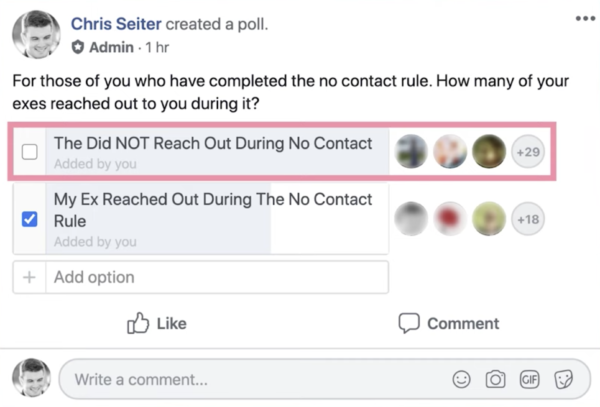
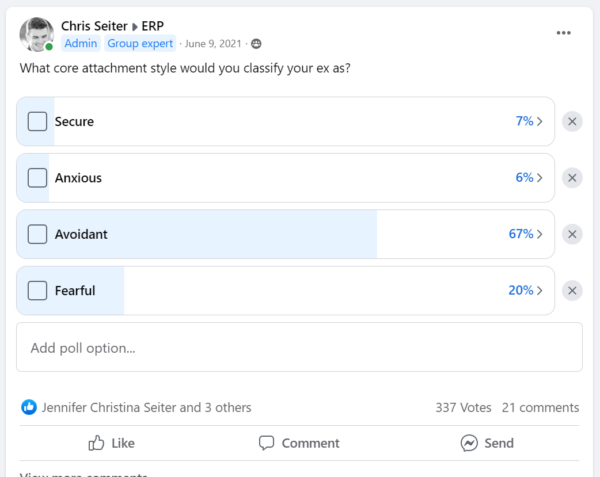
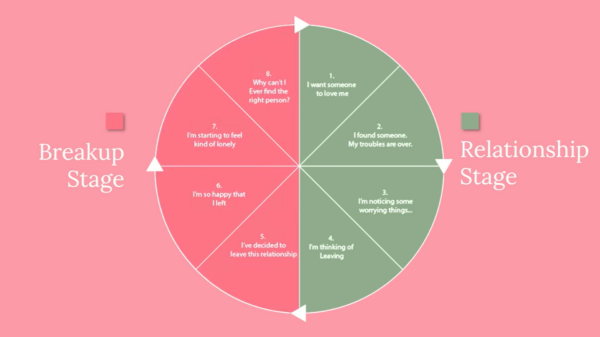
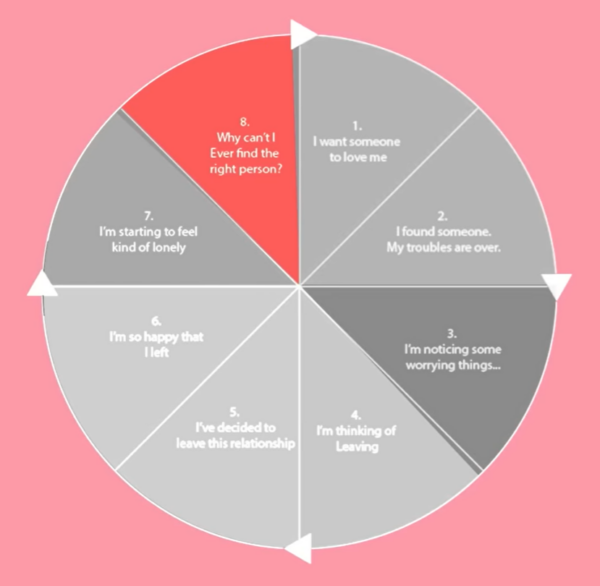
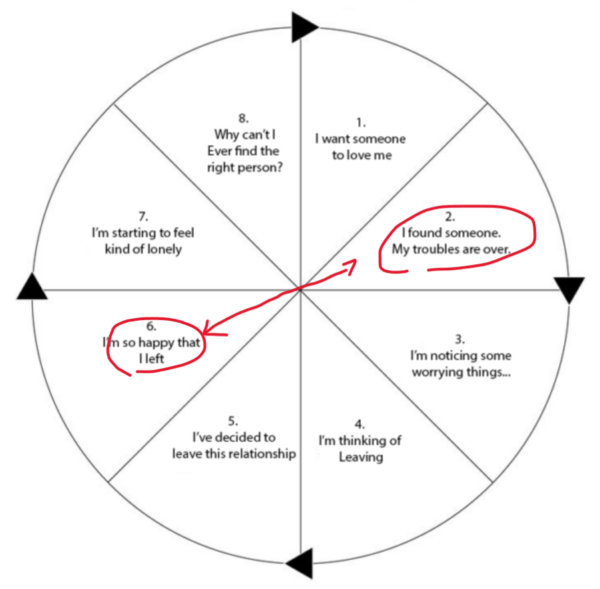
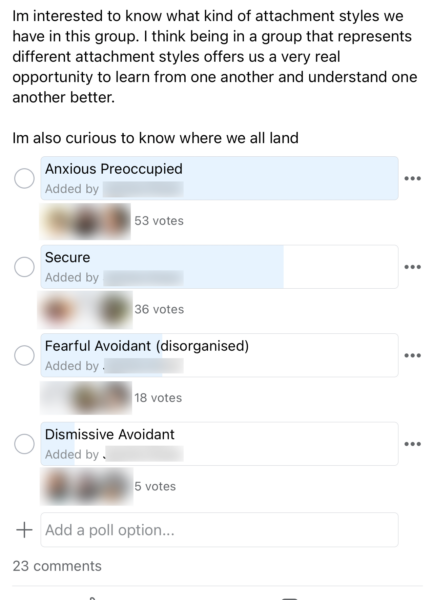
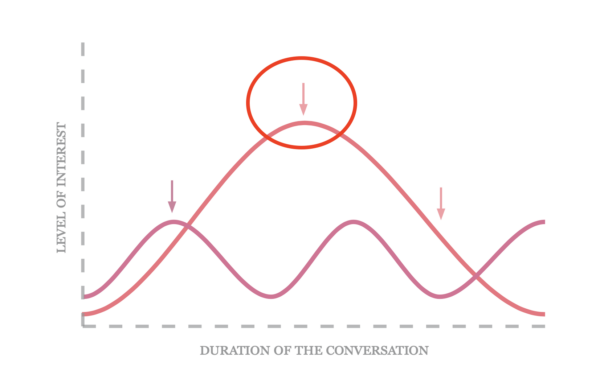
Kim
September 21, 2023 at 1:39 pm
I bought your program. I am trying, but I’m having a hard time getting over my ex so I still have not reached out to him. It has been two months now since I moved out. I do you think three months is too long to wait? I’m actually I’m not ready to reach out.
Coach Shaunna
September 30, 2023 at 4:09 pm
Hi Kim, if you are reading through the program you will know that we suggest you reach out before you reach 66 days of No Contact. Even though you do not feel ready to speak with your ERP yet, remind yourself that those first few interactions do not need to be emotional or deep conversation you are only attempting to break the ice.